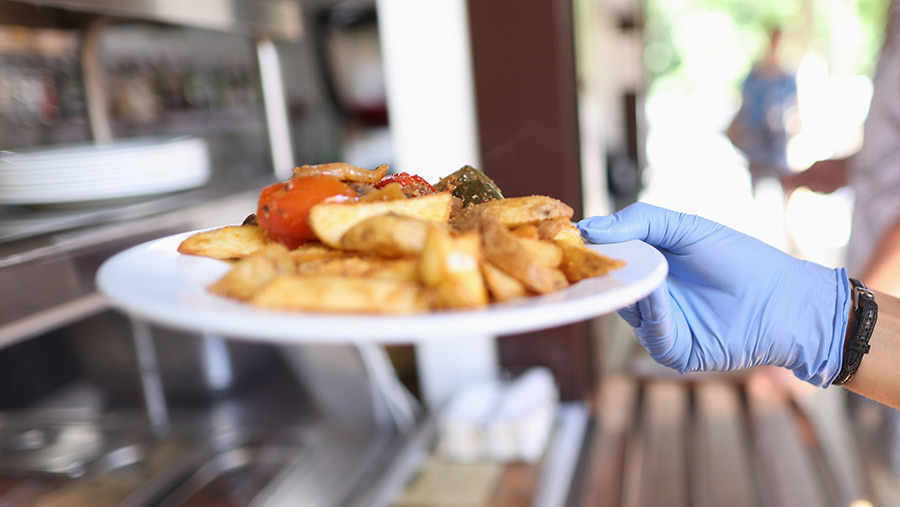Opinion: Government food sourcing ‘shrouded in secrecy’
 © H Ko/Adobe Stock
© H Ko/Adobe Stock Every year, the UK government spends more than £5bn procuring food and catering services for the public sectors of schools, hospitals, care homes, prisons, armed forces, and government offices.
But the provenance and environmental credentials of this food is shrouded in secrecy.
Nations such as Canada, the US, Australia and Denmark fanfare home-grown produce through their public procurement programmes. Why not in the UK? After all, this food touches nearly a quarter of the population.
See also: Opinion – future farmers must be able to wear many hats
Last month, Westminster Hall debated the future of this procurement for 2024 and its associated nutrition standards.
Currently, the Government Buying Standards for Food and Catering Service (GBSF) are vague, in many instances voluntary and contrary to the direction of travel one would expect for a sector of the population deserving of the healthiest of diets.
Little wonder the only growth in our economy is from the sale of trousers for oversized waistlines.
A 2021 Efra report was damning of current practices, which are a litany of excuses, ambiguous definitions, and exemptions to UK legislative standards for imports because of a need to provide “value for money” to public departments.
The report concluded that “the government simply does not make enough effort to support greater public sector access for domestic suppliers”.
The percentage sourced from UK farms appears a tightly hidden secret. What we do know is less than 12% of the apples are British.
The proposed “ambitious” target for 2024 is 50% of food sourced to be from the UK “where possible”. An educated guesstimate suggests only 30-35% of current provenance is from UK farms, at best.
The cost of NHS obesity-related illness is now estimated at £19.2bn a year, and yet Henry Dimbleby’s excellent national food strategy report of 2021 remains largely ignored, sitting on a Whitehall shelf gathering dust.
This is not just a canary in the coalmine of government’s low prioritisation of food, but a claxon on the election bus blaring “votes today, health tomorrow”.
The new rules for public procurement that come into force in October next year present government with a chance to prioritise diet and energise change.
But why only 50% UK-sourced? Why not 75%?
Change will focus efforts on increasing the number of UK cauliflowers sent to Wormwood Scrubs, but the opportunities are broader and arguably of greater priority.
Farming, like all sectors of society, needs purpose to thrive. As Brene Brown – one of the world’s leading thinkers on human behaviour – would attest, purpose comes from “belonging”, not “fitting in”.
We speak of the disconnection from food and farming being a lever to obesity. With a population that is five generations removed from the land, this presents a huge challenge.
However, the detrimental impact on the British countryside may be greater. In the past quarter century, farming has become exponentially isolated from 98% of the population.
“Fitting in” doesn’t fuel ambition. “Belonging” does. This comes from being valued. If the government has a long-term commitment to British food, it is a well-kept secret.
British farmers should be fuelling the young minds of Britain in our schools, feeding the road to recovery in our hospitals and building the strength of our defence forces.
Procuring UK food is the necessary fulcrum needed to promote British farming to the nation, but could also be a platform to building connections, and a sense of pride, purpose and belonging for those growing it.

